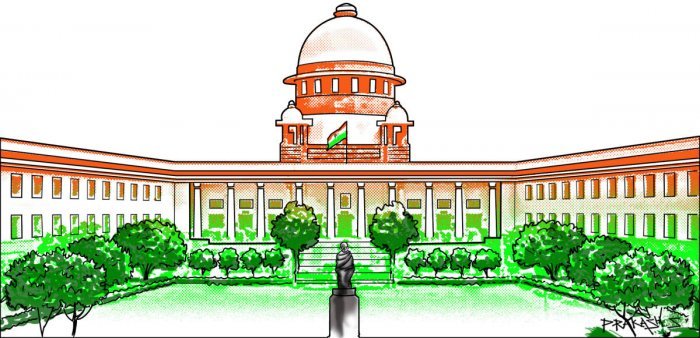Supreme Court Warns Judges: Robotic, mechanical orders lacking human wisdom create a public perception that “the law is an ass.” [P.U. Sidique & Ors. v. Zakariya (2025 INSC 1340)]

New Delhi: In a significant and far-reaching judgment in P.U. Sidique & Ors. v. Zakariya (2025 INSC 1340), the Supreme Court of India has delivered a strong warning to all High Courts and judicial authorities across the country, emphasising that justice cannot be reduced to a mechanical or robotic exercise.
This landmark judgment has been delivered by the Bench comprising Hon’ble Justices Sh. Rajesh Bindal and Sh. Manmohan.
The Bench observed that the administration of justice must remain a human-centred function, grounded in empathy, common sense, and lived human experience. The Court held that Artificial Intelligence, computers, algorithms, and rigid textual interpretation cannot replace judicial wisdom.
The Court expressed deep concern over the growing trend of applying law in a hyper-technical, narrow, or mechanical manner—ignoring context, circumstances, and equity.
Quoting Charles Dickens’ classic Oliver Twist, the Court recalled the famous warning of Mr. Bumble:
“If the law supposes that, the law is an ass.”
The Supreme Court said this line captures the danger of legal formalism that ignores fairness and practical reality. The Bench stressed that when courts apply statutory text blindly—without understanding the context and human consequences—people begin to feel that “the law itself is foolish or unjust.”
The Court observed ;
““This Court is of the view that human beings, and not artificial intelligence or computers, are entrusted with the duties of administration of justice as laws are to be interpreted with empathy and pragmatism and as a force of justice, not absurdity. The danger of mechanical application of law, blind to practical reality, was famously encapsulated by Charles Dickens in the classic ‘Oliver Twist’, where Mr. Bumble lamented, ‘If the law supposes that … the law is a ass,’ critiquing legal formalism that disregards common sense and fairness. Consequently, Courts must balance textual fidelity with interpretive wisdom, ensuring that laws are not applied mechanically without considering context or equity; but serve as true vehicles for the administration of justice.””
Human Wisdom vs. Mechanical Law
The Court declared that judges must always balance:
1. Textual fidelity — respect for the words of the statute, and
2. Interpretive wisdom — the human duty to ensure fairness, justice, and equity.
Justice, the Court said, is not delivered by machines. It requires sensitivity, moral judgment, social awareness, and constitutional values.
Directive to High Courts
The Supreme Court firmly directed that:
- High Courts must not adopt a mechanical approach to statutes.
- Courts should avoid robotic interpretation that defeats justice.
- Every judicial decision must be grounded in empathy, common sense, and fairness.
The ruling is now being regarded as a landmark reminder that the judiciary’s legitimacy depends not on strict literalism, but on its ability to dispense justice that resonates with human conscience and constitutional morality.




